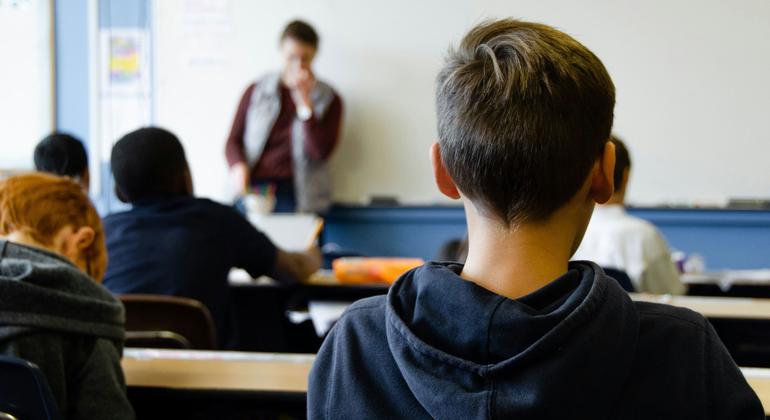The recent findings from a study based on data from nearly 280,000 young people aged 11, 13, and 15 across 44 countries have shed light on a growing crisis in adolescent well-being. The study highlights that girls and economically disadvantaged adolescents are the hardest hit by the challenges they face in their social environments. Dr. Hans Kluge, WHO Regional Director for Europe, expressed concern about the unprecedented challenges adolescents are facing today, warning that these challenges could have long-term consequences for their health and future prospects.
The decline in family and peer support is a major concern highlighted by the study. Family and peer support are crucial for adolescent mental health and overall development, yet the report shows a worrying decline in both areas. Between 2021 and 2022, only 68 percent of adolescents reported feeling supported by their families, down from 73 percent in 2018. The drop was even more significant for girls, with only 64 percent feeling strong family support compared to 72 percent in 2018. Peer support also decreased by three percent, with older adolescents being particularly vulnerable to mental health challenges. The report also highlighted the significant role of socioeconomic status in shaping adolescent experiences, with a nine percent disparity between low-income adolescents and those from wealthier households.
Academic pressure is intensifying, with significant consequences for adolescent mental health. Two-thirds of 15-year-old girls reported feeling overwhelmed by schoolwork during the study period, a sharp rise from 54 percent in 2018. Boys also reported increased pressure, albeit at lower rates. Dr. Irene García-Moya, one of the report authors, emphasized that the rising pressure on adolescents is a multifaceted issue. Girls often face competing expectations of academic excellence and traditional social roles, while boys may feel pressure to appear strong and self-reliant, discouraging them from seeking necessary support. The report also found that girls are less likely to feel supported by their teachers, pointing to a critical gap in support structures for adolescent girls.
The study recommends urgent action to address the challenges faced by adolescents. Dr. Natasha Azzopardi-Muscat, WHO Director of Country Health Policies and Systems for Europe, emphasized the need to take the gender dimension of the issue into careful consideration. The findings call for a collective effort from all sectors and industries to improve the conditions in which young people are growing up. It is essential to prioritize family and peer support, address academic pressures, and provide adequate support structures for adolescents, particularly girls and those from disadvantaged backgrounds.
The study underscores the need for targeted interventions and policies to support adolescent well-being. It is crucial to create safe and supportive environments for young people, where they can thrive and reach their full potential. By addressing the challenges highlighted in the study, we can ensure a brighter future for the next generation and contribute to overall societal well-being. The findings serve as a wake-up call for policymakers, educators, healthcare professionals, and communities to come together and prioritize the well-being of adolescents.









